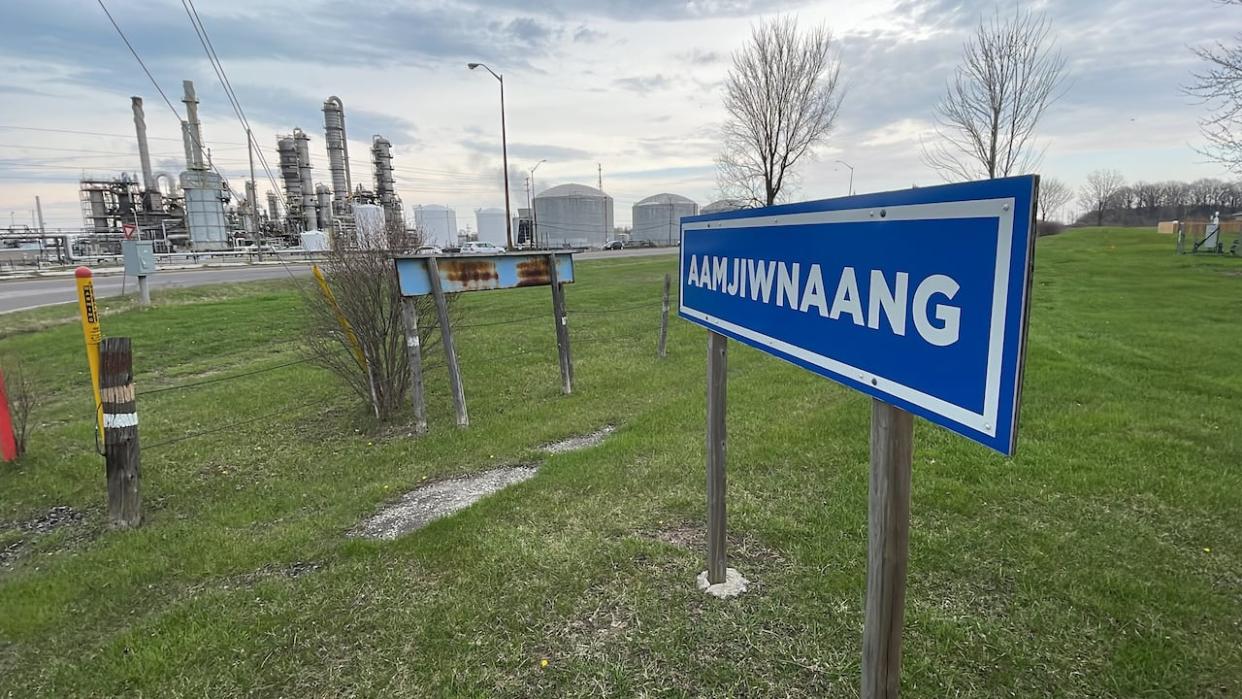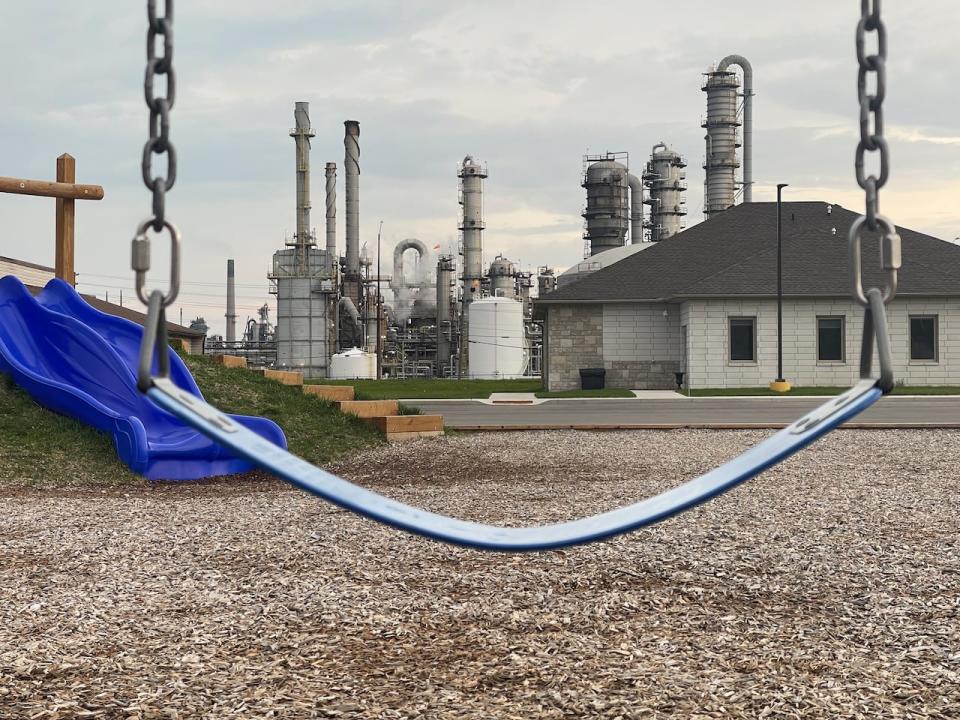Aamjiwnaang First Nation still on edge as chemical plant temporarily shuts doors

Some members of Aamjiwnaang First Nation near Sarnia, Ont., say they still have more questions than answers after the nearby chemical plant they blame for spikes in airborne benzene levels temporarily shut down over the weekend.
Darren Henry, an elected councillor for Aamjiwnaang, says they need real answers. Overnight Monday, air quality monitors at the First Nation recorded another benzene spike.
"We all know that benzene is a carcinogen... We don't know what those levels are. You know, we don't know really how acute effects will affect our band members."
Last week, the southwestern Ontario First Nation said it was shutting down its band office, which is directly across the street from the plastics chemical plant INEOS Styrolution, after staff suffered symptoms consistent with benzene exposure.
According to preliminary data from pollutant monitors in the region, multiple times this month, the air quality was recorded as poor and moderate from benzene levels.
On Monday, Henry said news INEOS was temporarily shutting down brought "a little bit of cautious relief."
INEOS announced it would temporarily shut down "to perform maintenance and address a mechanical issue."
"At INEOS Styrolution, ensuring the health and safety of our employees and community is paramount," a statement read.
The company did not respond to a request for comment on Monday.
Henry says what has happened has been "abhorrent" for the First Nation.
"Let's find out what happened, where, why it happened, let's be assured that the proper equipment is put in place and proper procedures so when they start up again they won't cause that impact to our community or any other," Henry said.
Provincial government orders company to cut emissions
The provincial government issued a provincial officer's order to INEOS on Thursday with multiple items of compliance ordered throughout the next month, ordering the company to reduce the amount of benzene in the air, have a timeline for that plan and show that they've hired someone for the work, among other measures.
The orders specifically target the emission of benzene from the plant, and say that since January there have been a number of times when benzene concentrations at the First Nation's monitor have been elevated for extended periods.
But one former environment ministry staffer says he's skeptical of how well the order will work.
"It's a bit of a get out of jail free card," said Scott Grant. During his career with the Ministry of Environment, he filed multiple complaints about the situation at Aamjiwnaang First Nation. After retiring, he now works with the First Nation.

A playground near the Aamjiwnaang First Nation band office. (Chris Ensing/CBC)
"I'm not sure it's going to be effective, they've issued three other ones in the last two years and none of them have been effective so we don't feel there's a real track record that the ministry is taking this seriously."
On Monday, the Ministry of Environment, Conservation and Parks said in a statement to CBC News more air quality monitors had been installed over the weekend.
"We are encouraged to see the company taking this matter seriously and will continue working with Aamjiwnaang First Nation to prioritize the health and safety of all residents," a spokesperson said.
WATCH: Where Aamjiwnaang is compared to a nearby plastic chemical producer
"Over the weekend, three additional air monitoring stations were installed to provide additional monitoring, and our Environmental Compliance Officers remain actively engaged to ensure the company's compliance with all orders issued to date. We will not rule out taking additional steps or compliance actions if required."
Henry noted the implications for surrounding communities, and for people that may have been unknowingly exposed while visiting the First Nation — like the class of kids who visited their sugar bush this year.
First Nation should give the OK: Lockridge
Henry says he wants to see assistance from the provincial and federal government in ongoing monitoring and testing for band members that have been exposed to benzene in any health issues they could encounter in the future.
Ada Lockridge is a longtime Aamjiwnaang First Nation resident and environmental advocate.
She says it should be the First Nation, not the government, who should make the determination of when the factory re-opens.
"That ministry hasn't been looking after us at all. So we should be giving the OK when what levels we want to breathe or when they're allowed to start back up," she said. "Because we have the right to breathe clean air and to feel safe in our homes."


